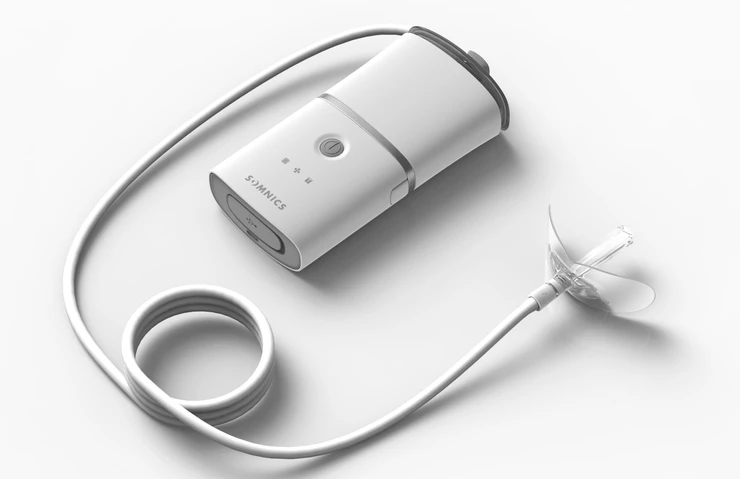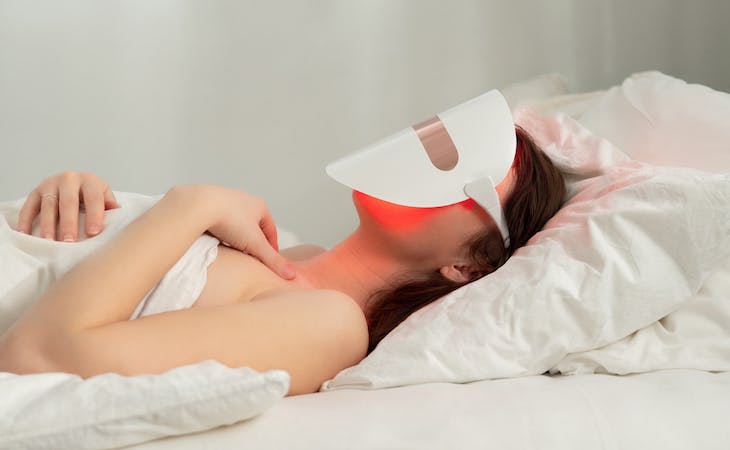Sleep Deprivation Help - Overcome Fatigue and Improve Health And Wellness
Sleep Deprivation Help - Overcome Fatigue and Improve Health And Wellness
Blog Article
Reliable Therapy Solutions for Taking Care Of Rest Disorders and Enhancing Restful Sleep
In the world of healthcare, the administration of rest conditions and the mission for relaxing sleep are pivotal components of general health. As we navigate the complex landscape of rest problems and seek to boost our rest experience, a much deeper understanding of these therapy services may hold the secret to opening an extra relaxing and meeting restorative trip.
Cognitive Behavioral Therapy for Sleep Problems (CBT-I)
Cognitive Behavioral Therapy for Sleeping Disorders (CBT-I) is an organized, evidence-based therapy strategy that concentrates on addressing the underlying aspects adding to sleep disturbances. This kind of treatment aims to change habits and ideas that intensify insomnia, inevitably promoting healthy rest patterns. CBT-I typically entails several vital components, including cognitive therapy, sleep restriction, stimulus control, and sleep hygiene education and learning.
Cognitive therapy helps people determine and alter unfavorable thought patterns and ideas concerning sleep that may be hindering their capacity to drop or stay asleep. Sleep restriction entails restricting the amount of time spent in bed to match the person's real sleep duration, thereby increasing rest effectiveness (natural insomnia remedies). Stimulation control strategies assist establish a strong organization between the bed and rest by urging people to head to bed only when drowsy and to stay clear of participating in promoting activities in bed
Additionally, sleep hygiene education focuses on creating healthy rest behaviors, such as preserving a constant sleep timetable, developing a relaxing bedtime routine, and optimizing the rest environment. By addressing these variables adequately, CBT-I offers an effective non-pharmacological intervention for taking care of sleeping disorders and enhancing general sleep high quality.
Rest Health Practices
Having established the structure of cognitive restructuring and behavioral alterations in resolving sleeping disorders via Cognitive Behavioral Therapy for Sleeplessness (CBT-I), the emphasis now moves in the direction of discovering necessary Rest Hygiene Practices for preserving optimal sleep quality and total wellness.
Sleep health practices encompass a variety of behaviors and ecological elements that can considerably impact one's capacity to drop off to sleep and remain asleep throughout the evening. Regular rest and wake times, creating a relaxing bedtime routine, and enhancing the sleep atmosphere by keeping it dark, peaceful, and cool are crucial elements of great sleep hygiene. Restricting exposure to displays before going to bed, avoiding stimulants like high levels of caffeine near to bedtime, and engaging in routine exercise during the day can likewise promote better sleep quality.
Furthermore, exercising leisure methods such as deep breathing exercises or reflection prior to bed can assist calm the mind and prepare the body for sleep. By incorporating these rest hygiene practices right into one's everyday routine, people can establish a healthy rest pattern that supports restful rest and general well-being.
Leisure Strategies and Mindfulness
Implementing leisure techniques and mindfulness practices can play a pivotal role in fostering a sense of calmness and advertising high quality sleep. In addition, guided images can help move individuals to a relaxed place in their minds, helping in stress and anxiety reduction and enhancing rest quality.
Mindfulness techniques, such as meditation and yoga exercise, are additionally efficient in promoting leisure and enhancing sleep. Mindfulness encourages people to stay existing in the comorbid insomnia minute, letting go of worries regarding the past or future. By including these methods into a bedtime regimen, people can signify to their bodies that it is time to prepare and unwind for rest. Overall, integrating leisure strategies and mindfulness techniques can significantly add to taking care of rest problems and boosting total rest high quality.

Medicine Options for Rest Disorders
After checking out leisure strategies and mindfulness methods as non-pharmacological treatments for boosting sleep top quality, it is vital to consider medicine choices for people with sleep problems. In instances where way of life adjustments and treatment do not give sufficient alleviation, medicine can be a beneficial tool in taking care of rest disruptions.
Typically suggested medications for rest problems consist of benzodiazepines, non-benzodiazepine hypnotics, antidepressants, and melatonin receptor agonists. Antidepressants, such as trazodone, can be advantageous for people with co-occurring depression and rest disruptions - cognitive behavioral therapy for insomnia (CBT-I).
It is vital for individuals to consult with a medical care provider to figure out one of the most proper medication alternative based upon their particular rest disorder and case history.
Light Treatment for Body Clock Policy
Light therapy, additionally referred to as phototherapy, is a non-invasive treatment approach made use of to control body clocks and enhance visit the website sleep-wake cycles. This therapy entails exposure to intense light that mimics all-natural sunlight, which aids to reset the body's internal clock. By subjecting individuals to details wavelengths of light, typically in the morning or night depending on the wanted result, light treatment can properly change the circadian rhythm to promote wakefulness throughout the day and enhance restful sleep at night.
Study has actually revealed that light therapy can be especially valuable for people with body clock conditions, such as delayed sleep stage disorder or jet lag. look at this site It can also be helpful for those experiencing seasonal depression (SAD), a kind of clinical depression that normally takes place throughout the winter season when all-natural light direct exposure is reduced. Light therapy is normally well-tolerated and can be made use of along with various other therapy techniques for rest conditions to maximize end results and enhance general rest high quality.
Verdict
Finally, effective treatment services for handling rest disorders and enhancing peaceful rest consist of Cognitive Behavior modification for Sleeping Disorders (CBT-I), sleep hygiene techniques, leisure methods and mindfulness, medicine options, and light therapy for body clock guideline. These approaches can assist individuals improve their rest top quality and general health. It is essential to seek advice from a medical care copyright to determine one of the most ideal approach for attending to sleep issues.
As we browse the intricate landscape of sleep disorders and look for to boost our sleep experience, a much deeper understanding of these therapy solutions may hold the key to unlocking a more refreshing and fulfilling corrective trip.
Rest restriction includes limiting the amount of time spent in bed to match the person's real rest period, thus boosting rest effectiveness. Regular rest and wake times, developing a relaxing going to bed regimen, and maximizing the rest atmosphere by keeping it dark, silent, and cool are crucial parts of excellent rest hygiene. Light treatment is normally well-tolerated and can be used in conjunction with various other treatment techniques for sleep conditions to optimize results and boost total sleep top quality.

Report this page